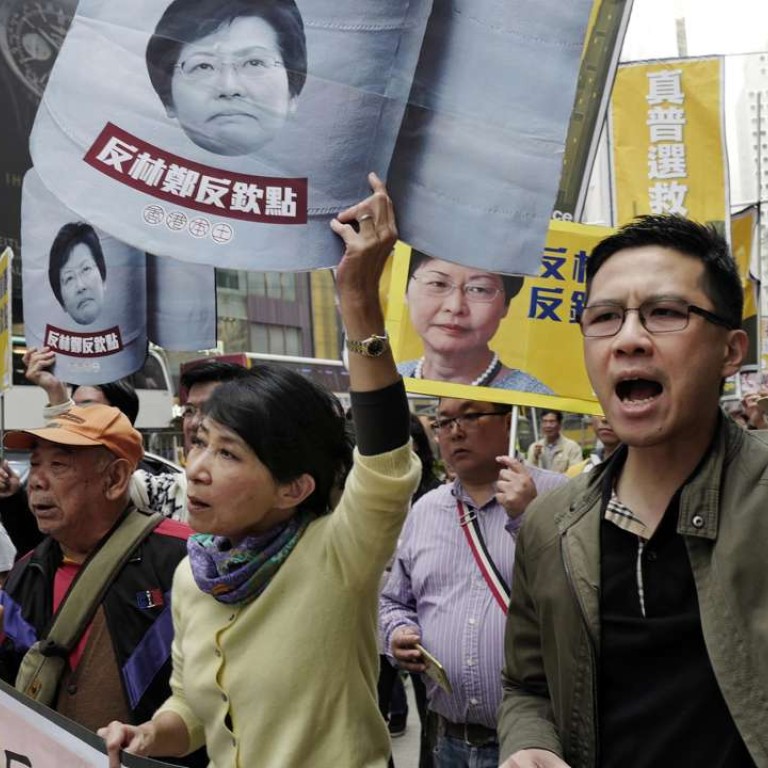
Beijing isn’t doing Carrie Lam any favours with its blatant signals
Alice Wu says this chief executive election has been remarkable for Beijing’s openness in indicating its preference, but the alienated and frustrated people of Hong Kong would welcome a less visible hand
Hongkongers have accepted that Beijing has a say in the matter, that in order to make “one country, two systems” work, it cannot be cut out of the equation, and that it has the political berth to indicate its “views”. Call it our famous pragmatism.
In Hong Kong’s chief executive race, potential backers wait for Beijing’s nod
Hongkongers have grown used to the signalling after the previous chief executive [s]elections. But there seems to be something amiss about it all this time. Before, it was clearly very carefully calibrated, with a lot of consideration to ensure the signalling was nuanced – it was Beijing’s nod to the “one country, two systems” premise and constitutional promise of a high degree of autonomy.
Watch: Carrie Lam kicks off election campaign
Hong Kong chief executive hopeful John Tsang says he’s still optimistic despite Lam’s big backing
As we have sadly seen, reason – or the truth, or facts – does not inform the language of populism. It feeds on the desperation and frustrations of those feeling marginalised, through wealth disparity or hopelessness at being left behind by globalisation.
We have been hit by Beijing’s growing influence in our politics and decision-making
In Hong Kong, we have also been hit by globalisation, growing competition and economic inequalities. We have been hit by desperation and frustration. But we have also been hit by Beijing’s growing influence in our politics and decision-making.
We don’t need to list how the people have reacted to this in the past few years. Some chose the impossible – independence – just to be in Beijing’s face. Even Lam acknowledged it would be counterproductive if the public believed a “visible hand” was behind the election, while also saying that she could not stop such a hand from influencing electors. This sense of political helplessness fuels Hong Kong’s populism.

In the Trump era, Hong Kong election race carries even more weight for Beijing
Populist campaign promises may well fuel our populist sentiment, but what feeds it most is the blatant exercise of Beijing’s influence. The threat of the diminishing power to choose – when we didn’t have a lot to begin with – drove thousands onto the streets. Political reform failed because people felt their vote could be rendered meaningless. Our politics has failed because little effort has been put into building trust. That requires give and take, at least, never mind a consensus.
Carrie Lam may be Beijing’s choice, but Hong Kong still needs a fair leadership race
It is should be disheartening for Beijing’s favourite to see that it is flexing a very visible arm. It may be meant for Lam’s benefit, but it is going to make her job that much harder. What she really needs are more visible nods from Beijing to “one country, two systems”.
Alice Wu is a political consultant and a former associate director of the Asia Pacific Media Network at UCLA

